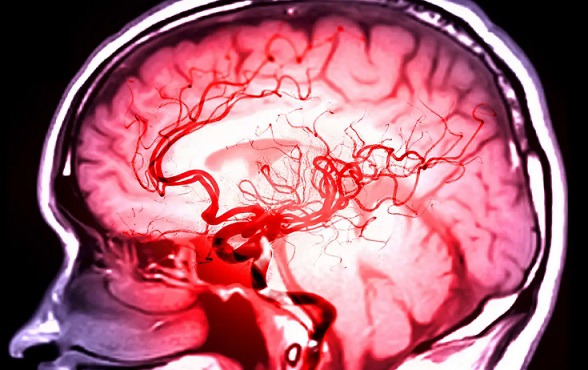Nikhil Prasad Fact checked by:Thailand Medical News Team Jul 31, 2025 6 months, 3 weeks, 2 days, 20 hours, 6 minutes ago
Thailand Medical News: A new study out of China has found that people who suffer a stroke while also infected with COVID-19 are much more likely to experience a dangerous and sudden worsening of their brain condition, a problem known as early neurological deterioration (END). This could mean more severe disability or even death for these patients if not addressed quickly.
 COVID-19 Stroke Patients Face Higher Risk of Sudden Brain Decline
COVID-19 Stroke Patients Face Higher Risk of Sudden Brain Decline
Researchers from the Department of Neurology at the Affiliated Aerospace Hospital of Zunyi Medical University and the Disease Prevention and Control Center of Huaxi District, both in Guizhou Province, conducted a detailed study involving 83 patients. These individuals were all diagnosed with acute ischemic stroke (AIS) and also tested positive for COVID-19. They were split into two groups: those who experienced END and those who didn’t. The team then closely examined their medical histories, lab results, and brain and heart scans.
This
Thailand Medical News report highlights that patients who had a history of diabetes or stroke, as well as those who arrived at the hospital with more severe stroke symptoms, were at significantly higher risk of developing END. These patients were also more likely to have abnormal heart readings (electrocardiograms), and blood tests showing high levels of inflammation and clotting problems.
Specifically, people in the END group had significantly higher levels of high-sensitivity C-reactive protein (hs-CRP), a marker of inflammation, and D-Dimer, a protein fragment that signals blood clots. They also had longer blood clotting times (prothrombin time, or PT), and elevated high-sensitivity cardiac troponin (hs-CTN), which usually means heart injury. Many also showed abnormal heart rhythms.
The researchers believe COVID-19 likely causes a storm of inflammation in the body, damaging blood vessels and causing widespread clotting issues. This makes stroke symptoms worse and more difficult to treat. The virus also appears to harm heart function, further complicating recovery.
Interestingly, the amount of lung damage from COVID-19 did not directly affect whether a patient experienced neurological decline, suggesting that the virus's impact on the brain and blood vessels plays a more critical role.
In conclusion, patients who have COVID-19 and suffer a stroke are at a significantly higher risk of sudden brain function decline if they also have diabetes, a history of stroke, high stroke severity at admission, abnormal heart readings, or signs of inflammation and blood clotting in lab tests. Doctors treating such patients need to be extra cautious and monitor them closely for these risk factors, as early intervention may help reduce long-term brain damage or death.
The study findings were published in the peer reviewed journal: Scientific Reports
https://link.springer.com/article/10.1038/s41598-025-13173-2
For the latest COVID-19 News, keep on lo
gging to
Thailand Medical News.
Read Also:
https://www.thailandmedical.news/news/phytochemical-from-chinese-herb-shows-potential-in-stroke-treatment-through-estrogen-receptor-pathway
https://www.thailandmedical.news/news/lactate-may-hold-the-key-to-preventing-brain-cell-death-in-stroke-victims
https://www.thailandmedical.news/news/many-are-unaware-that-influenza-infections-also-increase-the-risk-of-stroke-just-like-covid-19
